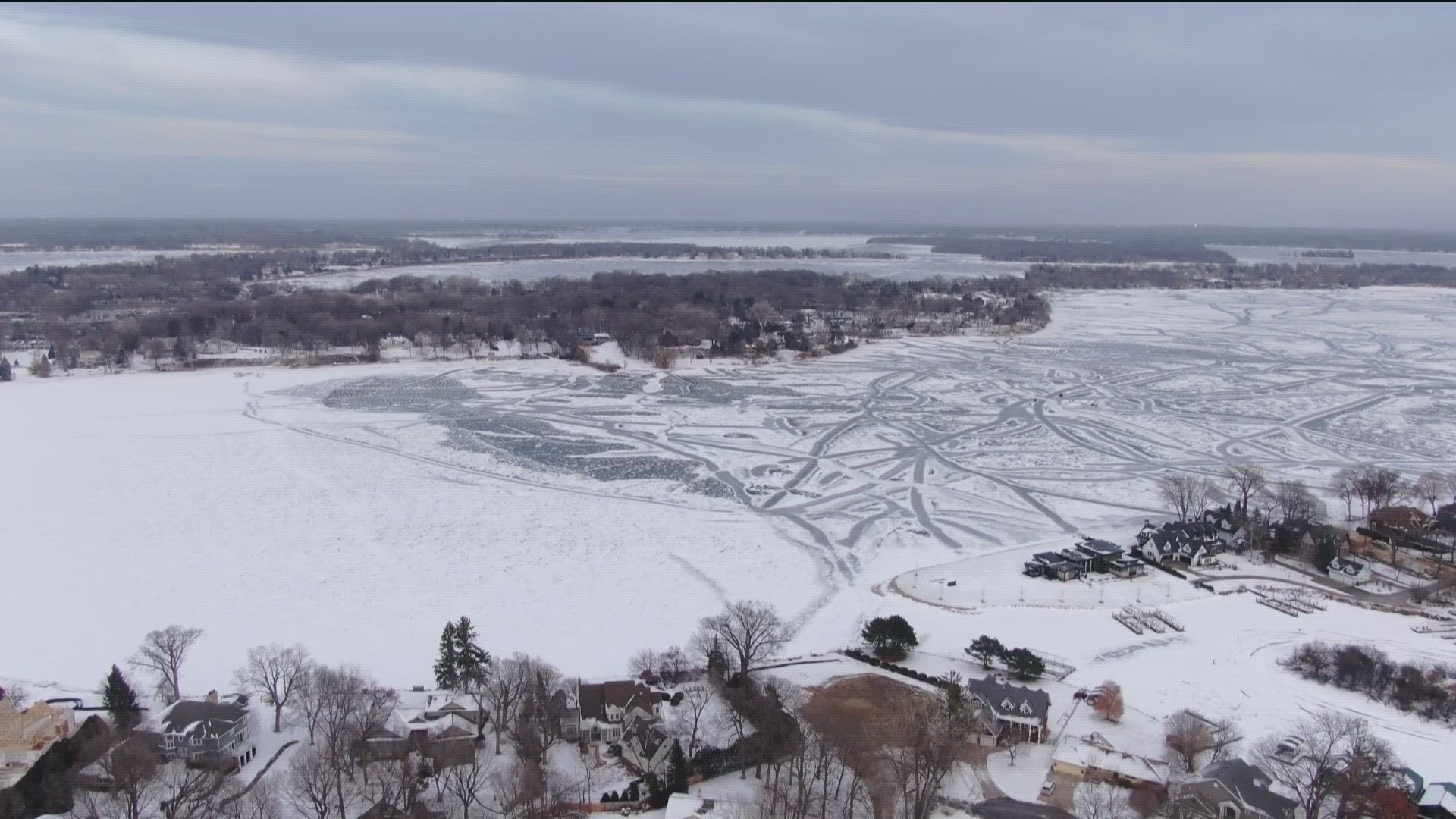ORONO, Minn. — Sunday after 10 a.m., Penny Saiki was drinking her second cup of coffee when all of a sudden her home shook.
"There was a great big, huge boom and I thought something exploded. But it felt like it should have been in my basement. That's how loud it was," Saiki recalled.
Saiki said she wasn't sure what came first: The boom or the shaking. But she said it lasted only a second.
Saiki, who lives on Casco Point Road in Orono, said, "I've been here since '96... that's 27 years and this is the first time I felt it."
On the Facebook group, "The Lake Minnetonka Fan Club" other people who live around the lake also reported similar stories starting last Wednesday.
Hennepin County dispatch said they have not received any calls related to the sound. While a cause has not been confirmed, some online speculated that frost quakes could be behind the mysterious booms.
"Effectively, what's happening is you have frozen ground, because there's some water in the soil that freezes and the whole ground is frozen, and all of a sudden a crack forms really rapidly. When that happens, that releases energy that sometimes you can hear, and that's the boom. And sometimes it causes shaking," explained Lars Hansen, associate professor in the Earth and Environmental Sciences Department at the University of Minnesota.
Hansen said frost quakes need a combination of favorable moisture levels in the soil and rapidly changing temperatures. This month we had snow, followed by temperatures above freezing, before arctic air moved in.
"Anytime there are big changes in temperature, then the frozen ground is trying to expand or contract depending on whether or not it's heating or cooling. When it does, that builds up stress that then can be released through a crack," Hansen said. "So really any sort of rapid temperature change could lead to this but it seems more likely to happen when it's cooling off rapidly."
CNN reported that frost quakes were felt around Chicago last week. Illinois state climatologist Trent Ford told CNN there is no formal reporting system for frost quakes.
Frost quakes typically happen when there is little snow to insulate the ground.
"Your frozen ground needs to be susceptible to these changes in temperature... if it's buffered from that by snowpack, then you're less likely to have these cracks forming," Hansen said.
Sometimes a frost quake will be visible with a crack in the ground while at other times it won't be. Hansen said frostquakes seem to be less prevalent in Minnesota.
Frost quakes are different from ice quakes.
"Ice quakes will happen in frozen lakes and a lot of people are probably really familiar with this where in the mornings or evenings, just due to the expansion or contraction of the ice, it'll form cracks and you can hear them opening and moving through the lake. But you'll notice that that's more frequent when the temperatures are changing. So same idea except that's ice on the surface of a lake, as opposed to the frozen soil on the ground," Hansen said.
Saiki said it does not appear there is any damage to her home.
"It is really wild. And it's... nature and it's the first time I've heard it. So it was like... what a freak of nature," said Saiki, laughing.
Watch more local news:
Watch the latest local news from the Twin Cities and across Minnesota in our YouTube playlist:

